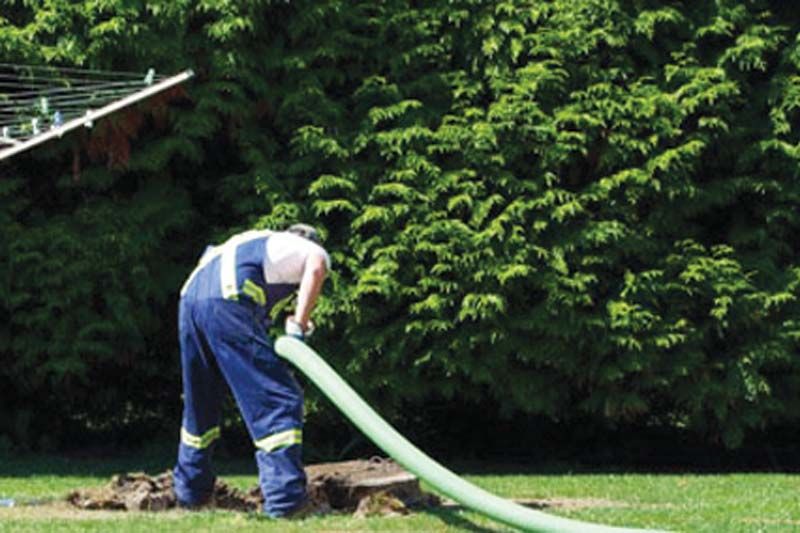Craig Bakay | Oct 04, 2017
With Central Frontenac Township scheduled to provide direction to staff concerning proposed mandatory septic inspection Oct. 24, here’s a look at just how widespread septic failure is.
First, in consultation with Central Frontenac Treasurer Michael McGovern, the Frontenac News looked at just how many septic tanks there are in the Township.
To do this, we looked at the tax roll.
There are just under 6,000 tax bills sent out every year.
Of these 2,050 are for seasonal residences, 206 are for farm residences and 1,047 are for permanent residences. In total, this comes to 4,103.
In addition, there are 127 commercial bills but some of these are combined with residential so we (with McGovern’s input) estimated that number to be about 100.
We rounded the number off to come up with 4,200 septic tanks in Central Frontenac.
Next, we consulted with Gord Mitchell, Public Health Inspector for KFLO&A Public Health.
If a septic system fails, they’ll be the ones to know about it because they’re the ones who issue permits to have it replaced.
Mitchell said that it’s not hard to tell when your system has failed. Either you won’t be able to live with it (smell, mess, backflow, etc) or your neighbours won’t and will let Public Health know.
While it is possible for someone to simply walk away from a property after a septic fail, it is extremely rare and not statistically significant.
Now the following numbers are for replacement septic systems. Not all replacements are necessarily for failures as some represent renovations, and/or additions.
In 2016, the Sharbot Lake office issued 86 permits for septic system installation. Of these, 21 were for replacement systems. In 2014 there were 87 permits issued, 5 of which were for replacement systems. In 2015, there were 82 permits issued with 5 replacements.
For comparison purposes, the numbers at the Cloyne office were 80 permits with 10 for replacements in 2014, 70 permits with 7 for replacement in 2015 and 80 installation permits with 16 for replacements in 2016.
So looking at the Sharbot Lake (ie Central Frontenac numbers) over a three-year period, there were 31 replacement systems permits issued or on average 10 systems per year.
If all of those replacement systems were for failure of the previous system, that would be 10 of 4,200 systems replaced per year or 0.24 per cent.
Mitchell also added that by far and away the bulk of their work is around cities, not strictly rural areas. He said that not only are there a lot more systems in areas in and around cities but those systems also tend to be a lot older, more than 40 years old in many cases.
More Stories
- Kaladar Station - Sometimes the timing is just right
- 50th Anniversary Party for Rural Frontenac Community Services
- Bioblitz Coming This Week at Piccadilly Property
- Committee recommends looking at an accommodation tax in Frontenac County
- Bobs and Crow Lake Shoreline Restoration
- Ellen Fraser is recognized as the winner of the 2025 MERA Award of Excellence in Fine Art and Fine Craft.
- Addington Highlands Treads Lightly Into F Carney Flag Debate Territory
- Simonett Purchase Raises Questions
- Why This Green Could Not Vote Red
- The Sand Is Still Coloured

